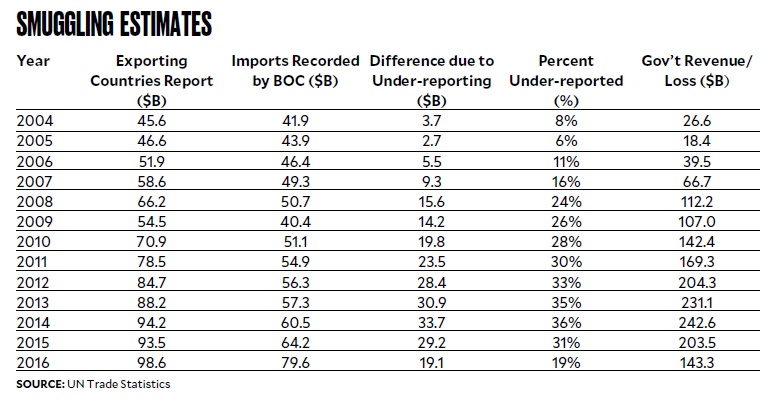Technical smuggling and agriculture
It is technical smuggling that harms agriculture, not outright smuggling. Now that the issue of smuggling is in the limelight again due to the shabu smuggling scandal, our legislative and executive branches should consider resurrecting a structure that combated smuggling successfully in the past. This is the Cabinet Oversight Committee against Smuggling (Cocas), which decreased smuggling by 25 percent, but was abolished because it caught “big fish.”
Lawyer Filamer Miguel, in her article “Smuggling 101,” explains technical smuggling. It “takes place when the goods and articles are brought into the country through fraudulent or erroneous declarations to substantially reduce….the payment of taxes, duties, and other charges.”
This generally takes three forms: undervaluation, misclassification and misdeclaration.
Undervaluation happens when an importer claims a cost for the product that is significantly below the reference value provided by the Department of Agriculture or Department of Trade and Industry. It also happens with insurance and freight charges. Both the tariff and value-added tax are based on a product’s CIF (cost, insurance, freight).
Undervaluation deprives the government of the revenue from both tariffs and taxes. As Section 3519 of the Tariff and Customs Code of the Philippines states, this refers to “all taxes, fees, and charges imposed by the BOC and the Bureau of Internal Revenue.”
Misclassification occurs when the product is claimed to be in a wrong category. For example, poultry choice cuts with a 40-percent tariff were misclassified as mechanical deboned meat (MDM) to take advantage of its zero tariff.
Misdeclaration is when the product in question is clearly not what it is declared to be. Examples were when onions were declared as office equipment, and drugs were declared as vegetables.
The smuggling computed from United Nations Comtrade data is mostly technical smuggling. Export numbers of countries sending goods to the Philippines are compared with the BOC’s record of imports from these countries. The difference is largely smuggling.
After the Cocas was abolished despite the decreasing smuggling incidence from 8 percent to 6 percent in 2005, smuggling then steadily increased to 36 percent in 2014. In 2015, a significant change occurred. The Anti-Smuggling Committee of the National Competitiveness Council (NCC) started having its meetings right inside the conference room of the BOC.
This committee was largely ineffective before 2015 because it held its meetings outside BOC. Furthermore, it was composed of low-level officials. Instead of a secretary and undersecretaries that Cocas had, it mostly had division chiefs and consultants. Nevertheless, with meetings held at the BOC, transparency increased. The smuggling rate decreased.
But in November 2016, information given to the private sector largely stopped. A memorandum of agreement between the BOC and the Alyansa Agrikultura was signed to resume this flow. Unfortunately, Customs Deputy Commissioner Lachica was killed after he signed this MOA. Within the next few days, the Alyansa Agrikultura signatory was threatened thrice to likewise be killed. The information flow to the private sector has not been restored since then. Since January 2017, all meetings of the NCC’s Anti-Smuggling Committee have stopped.
On Sept. 4, at the Senate Blue Ribbon Committee meeting on smuggling, we talked to newly appointed Customs Commissioner Isidro Lapeña. He expressed interest in harnessing private sector participation in fighting smuggling. Also, some senators said they would consider the restoration of a high level structure like Cocas to replace NCC’s Anti-Smuggling Committee.
Sen. Panfilo Lacson should be commended for his Aug. 23 comprehensive exposé on today’s rampant smuggling. We should build on this by restoring both the private sector participation in fighting smuggling and supplement this with a Cabinet level oversight antismuggling committee. With Lapeña and these two added structural elements, we believe we can end today’s smuggling scourge.















